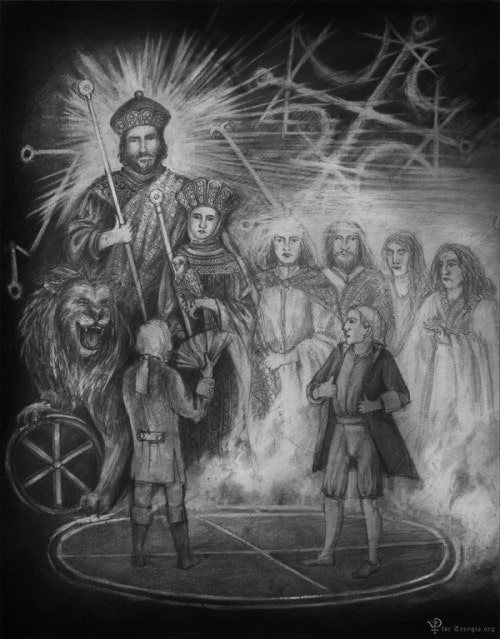Dreams and their meaning — Sar Dinoil
Dreams and their meaning
(excerpt)
Sar Dinoil
 Sleep plays a huge role in human life. Under normal conditions, sleep occupies one third of our lives. During sleep, a person plunges into the other world - his/her real patronymic, where he/she stocks up with new forces necessary for him to bear the burdens of earthly existence.
Sleep plays a huge role in human life. Under normal conditions, sleep occupies one third of our lives. During sleep, a person plunges into the other world - his/her real patronymic, where he/she stocks up with new forces necessary for him to bear the burdens of earthly existence.
It’s especially interesting for us that during sleep there is a more or less complete “bifurcation of man.” The connection between the physical and spiritual principles in a dream weakens and can reach their complete separation, with the spiritual principle gradually plunging into higher planes (astral, mental) , looking at the degree of depth of sleep.
Sleep is the only state during which the activity of a higher consciousness manifests itself in essence, representing our real self (individuality).
The word "sleep" has an extensive meaning and should be distinguished from the word "sleep" in the sense of a dream. Sleep can be used to obtain many conditions, from our point of view, and to develop occult abilities.
Hypnagogic (half-asleep or dozing) state.
We called hypnagogic a state that separates wakefulness from sleep, lasting under normal conditions only one moment.
This condition is observed when a person falls asleep, but not completely, or when he wakes up, but not completely, in general, when he is dozing.
Like everything in nature that avoids abrupt transitions, sleep never occurs immediately, but gradually. When person is falling asleep, a sleep is constantly preceded by a passive state, or a state of drowsiness or half-sleep. The same is observed before awakening, with the addition of the moments of the active state (stretchIng and yawning).
The significance of the hypnagogic state is enormous: our mood and thoughts when falling asleep and waking up largely determine how we will be tuned throughout the day. As we are tuned in the evening, so we will be tuned both in the morning and all day.
Many painful ideas of sadness, despondency, doubts and the like are rooted in us precisely during falling asleep and awakening, and especially during a painful half-asleep state with insomnia.
If in the evening we are sad, angry, tired or ill-disposed, then we should let all of this go without a trace and only then go to bed.
In the morning, upon waking up, do not forget to tell your face a friendly and cheerful expression in front of the mirror.
Immediately after awakening we should avoid bad or restless thoughts, reading bad news, newspaper chronicles, and the like.
There is an old saying that morning is wiser than evening. Folk wisdom has long noticed that many difficult questions that seemed insoluble in the evening turned out to be resolved by themselves in the morning, if they were thought about before going to bed. Many inventors, scientists, writers and others, thinking before going to bed about things that puzzled them, found ready-made answers to their questions in the morning upon waking. Most people in the evening can inspire themselves to wake up the next morning at a specific hour.
It can be seen from the foregoing that the last thought before going to sleep, the thought with which we fall asleep, has a special effect on us.
This is explained by the action of the same Higher Unconscious, liberated in a dream and intensely working on the latter before falling into a dream with conscious thought, similar to how it happens in hypnosis, i.e., artificial sleep.
The last thought acts on us as an energetic suggestion, the influence of which extends to the whole time of sleep. The same, but to a weaker degree, takes place in relation to the first thought upon awakening.
The continuation of the material will be presented in a special miscellany of Theurgia.org
Author © Sar Dinoil
Article from Isis Magazine
Translated by Eric Midnight, April 2020


























